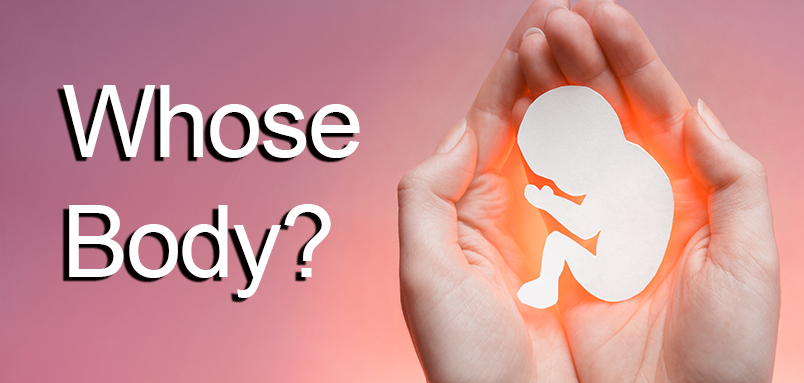
The pro-life, pro-abortion debate is again center stage because of politics. It should have never left the front page. Americans abort almost a million children every year. That’s a tragedy beyond imagination. Yet it is accepted as a part of our society. In time, we pray that historians will list abortion among the great civil rights debacles of our age.
Proponents of abortion are a mixed lot. Some allow for early abortions, before quickening, others to the point of viability, and some to the instant of birth and beyond. But almost all like to declare that abortion must be legal because women have a right to their own bodies. Abortion supporters should seriously reconsider their use of this specious argument.
No one has an absolute right to their own body
First, we belong to God. He is the Creator (Genesis 1:1; Genesis 1:27). As such, he may declare what can, and cannot be done with our bodies. We may not commit adultery with our bodies (Exodus 20:14; Proverbs 6:29; 1 Corinthians 6:9; Galatians 5:19). In fact, we may not use our bodies for any sexually immoral practice. The civil laws of our land also restrict what we may do with our bodies. Drug and alcohol use is restricted. Public intoxication laws (and public decency laws) are enforced even in the absence of a victim. Prostitution is illegal in most places. Civil laws often change. In the past, adultery was a criminal act, as was homosexual behaviors. My point is that no absolute right to our bodies exist and never have. It is proper, ordinary, and historical for there to be restrictions on our actions and behaviors.
Ethicist Scott B. Rae adds that the fetus is not part of the woman’s body. He writes, “It does not follow that just because the fetus is attached to its mother by an umbilical cord that the fetus is part of her in a way that denies its own separate identity.” (Rae, Moral Choices, p. 139). The fetus is unique. That leads to the next important point.
No one has an absolute right to someone else’ body
Abortion supporters overlook and hope you will, too, the uniqueness of the life that women carry in the womb. That tiny embryo is life. It is a unique, human life that awaits birth. No one has a right to destroy that growing life. From the moment of conception, a unique DNA structure exists. Examination of that DNA reveals a human being. Nothing changes at birth. Even if one allows that a woman has an absolute right to her body, they cannot uphold that we have a right to someone else’s body. There is no right to take the life of another.
Some abortion supporters are demanding that a mother has the right to kill her child during the birthing process, i.e., while still in the birth canal, and even after the child is born! The idea of so-called after-birth abortion is gaining traction. A 2013 Ethics symposium featured a scholarly paper around the idea that “(killing a newborn) should be permissible in all the cases where abortion is, including cases where the newborn is not disabled.” (Giubilini & Minerva, Journal of Medical Ethics, 2012). At the time of publication, that was an outcry against their conclusions. But it is likely only a matter of time before mainstream culture accepts after-birth abortion.
Christians must oppose the killing of the most vulnerable among us. It is a classic application of the Golden Rule and a sin that must be opposed.
